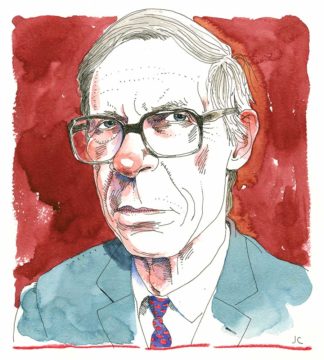Olúfémi O. Táíwò in The Nation:
 With its doctrine of fairness, A Theory of Justice transformed political philosophy. The English historian Peter Laslett had described the field as “dead” in 1956; with Rawls’s book that changed almost overnight. Now philosophers were arguing about the nature of Rawlsian principles and their implications—and for that matter were once again interested in matters of political and economic justice. Rawls’s terms became lingua franca: Many considered how his arguments, focused mostly on domestic or national issues of justice, might be applied to questions of international justice as well. Others sought to extend his theory’s set of political principles, while still others probed the limits of Rawls’s epistemology and the narrowness of his focus on individuals. A decade after A Theory of Justice appeared, Forrester notes, 2,512 books and articles had been published engaging with its central claims.
With its doctrine of fairness, A Theory of Justice transformed political philosophy. The English historian Peter Laslett had described the field as “dead” in 1956; with Rawls’s book that changed almost overnight. Now philosophers were arguing about the nature of Rawlsian principles and their implications—and for that matter were once again interested in matters of political and economic justice. Rawls’s terms became lingua franca: Many considered how his arguments, focused mostly on domestic or national issues of justice, might be applied to questions of international justice as well. Others sought to extend his theory’s set of political principles, while still others probed the limits of Rawls’s epistemology and the narrowness of his focus on individuals. A decade after A Theory of Justice appeared, Forrester notes, 2,512 books and articles had been published engaging with its central claims.
Rawls’s liberal theory of justice as fairness has continued to define the shape and trajectory of political philosophy and liberalism writ large to this day.
More here.
